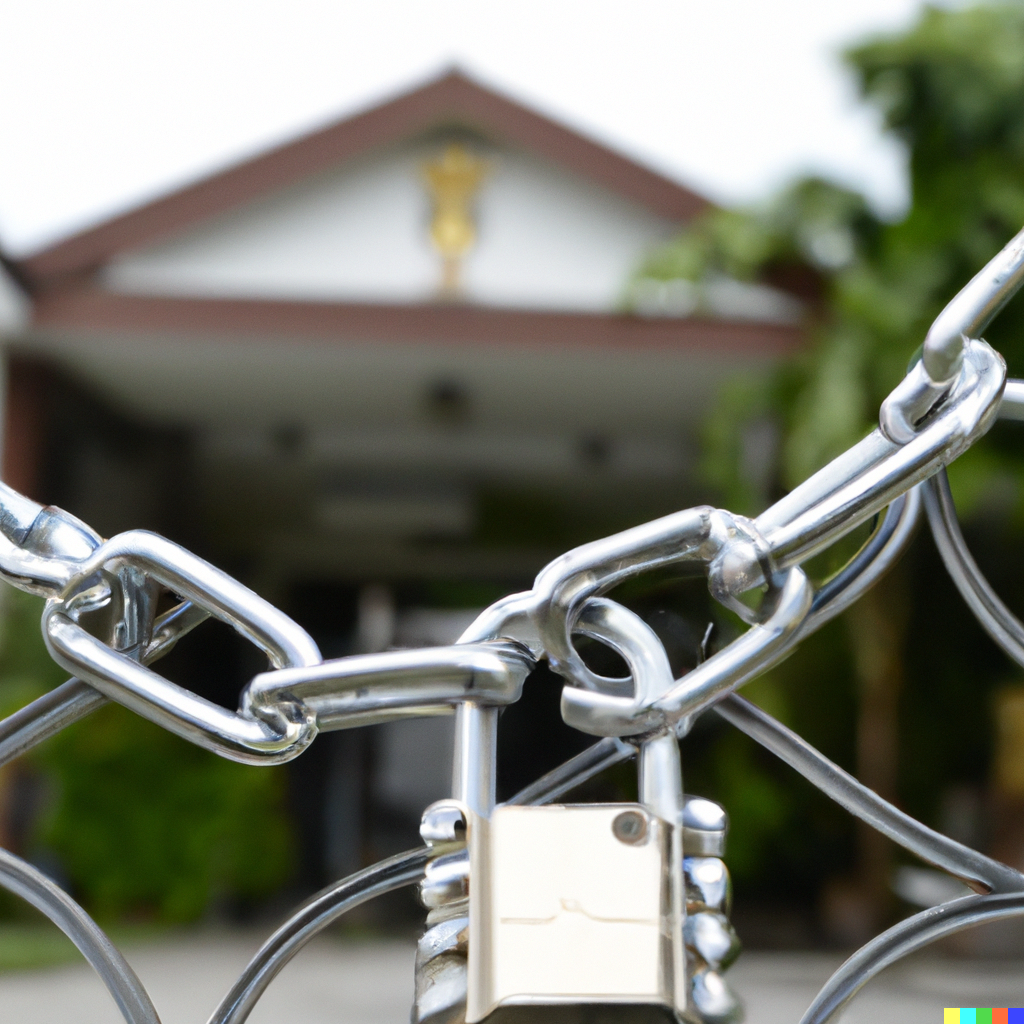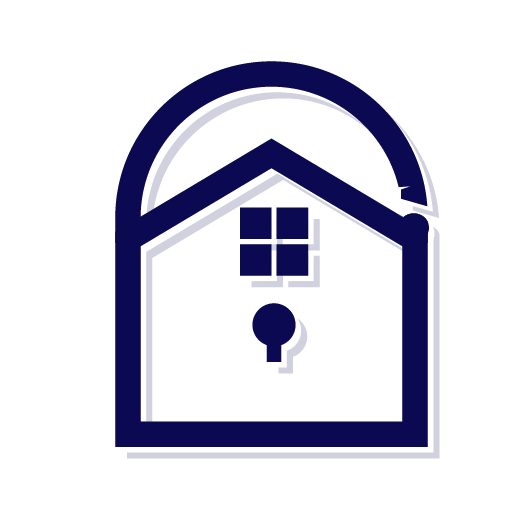A home invasion is when an intruder enters a person’s home with the intent to commit a crime, such as theft or violence. It is a serious crime that can have devastating consequences for the occupants of the home. Being prepared for a home invasion can help protect your family and give you peace of mind. It is important to take steps to secure your home, develop a plan of action, and be aware of your surroundings to minimize the risk of a home invasion and to be able to respond quickly and effectively if one occurs.
1.Develop a plan
Create a plan for what to do in case of a home invasion. Include specific instructions for each family member, such as where to hide and how to call for help.
Creating a plan of action is crucial in the event of a home invasion. Every member of the household should know what to do, where to go and how to contact help.

It’s important to have a designated safe room, or a place where everyone can go to hide and wait for help. Also, every member should know how to call 911 or other emergency services. It’s also important to have a designated person or persons that will be responsible for contacting the authorities and ensuring that everyone is safe. It’s a good idea to practice the plan with your family to ensure that everyone is familiar with it and knows what to do in case of a home invasion.
2.Increase home security
Take steps to secure your home such as installing security cameras, alarm systems, and deadbolts.
There are various ways to increase the security of your home and deter potential intruders. One effective method is to install security cameras, which can help you monitor your home and potentially provide evidence if a break-in does occur. Alarm systems can also be a deterrent and alert you and the authorities of an intrusion.
Deadbolts on all exterior doors and windows can also be installed to make it more difficult for an intruder to enter. Adding motion sensor lights outside can also be an effective way to deter intruders by illuminating the area around the house when motion is detected.
It’s also important to make sure that all doors and windows are locked when you are away from home or when you go to bed. Trim bushes and trees near windows and install window bars or other physical barriers to make it more difficult for intruders to enter.
3.Be aware of your surroundings
Familiarize yourself with your neighborhood and be aware of any suspicious activity. Keep an eye out for unfamiliar cars or people and report anything suspicious to the authorities.
Being aware of your surroundings is an important aspect of home security. It’s important to familiarize yourself with the area around your home and the people who live and work there. This will make it easier for you to spot anything out of the ordinary or suspicious. If you notice any unfamiliar cars or people in your neighborhood, it’s important to report it to the authorities. Keeping an eye out for suspicious activity can help deter potential intruders and keep your community safe.
You can also join or start a neighborhood watch program. This will help you to be aware of the activities and people in the area, and to work with your neighbors to prevent crime. Additionally, you can also make sure that your house number is visible from the street for emergency responders to find your house easily.
4.Create a safe room
Designate a room in your home as a safe room where your family can go in case of an emergency. Make sure the room has a sturdy lock and is stocked with necessary supplies.
Designating a safe room in your home can provide a secure and protected place for your family to go in case of a home invasion or other emergency. The safe room should be a room that can be locked from the inside and is difficult for an intruder to access. It should be well-ventilated and have a phone, or a way to call for help. It’s important to make sure that the room is stocked with necessary supplies, such as a flashlight, a first aid kit, and emergency contact information. It’s also a good idea to have a way to communicate with the outside world, such as a cell phone or a two-way radio.
It’s important to inform your family of the location of the safe room and make sure that everyone knows how to get there quickly and safely. It’s also a good idea to practice going to the safe room during drills or when the alarm is triggered to ensure that everyone is familiar with the process.
5. Practice your plan
Regularly practice your plan with your family so that everyone knows what to do in case of a home invasion.
Regularly practicing your plan can help ensure that everyone knows what to do in case of a home invasion. It’s important to practice different scenarios and to make sure that everyone knows how to get to the safe room quickly and safely. It’s also important to practice calling for help and to make sure that everyone knows the emergency contact numbers.
During the practice, you can also identify areas that need improvement and make necessary changes to the plan. It’s also a good idea to test your security systems and make sure that they are working properly.
Regular practice can help reduce the stress and confusion that can occur during an actual emergency and can help ensure that your family is prepared to respond quickly and effectively.
6.Know self-defense techniques
Teach your family basic self-defense techniques to protect themselves in case of a home invasion.
Knowing basic self-defense techniques can be a valuable tool for protecting yourself and your family in case of a home invasion. It is important for every member of the family to know how to protect themselves and to be able to defend themselves in case of an emergency. You can look into self-defense classes or workshops that are available in your area, or you can research self-defense techniques online and practice them with your family.
Some basic self-defense techniques include:
- Striking vulnerable areas on an attacker’s body, such as the eyes, nose, throat, and groin.
- Using everyday objects as weapons, such as a flashlight or a pen.
- Escaping an attacker’s grasp by pulling away or using leverage to break free.
- Verbal self-defense, such as using a loud, assertive voice to deter an attacker.
It’s important to remember that self-defense is not just physical, but also mental and emotional. It is important to maintain a calm and clear mind and to stay alert and aware of your surroundings in order to identify and avoid potential dangers.
7.Be prepared for the aftermath
Create a plan for after the home invasion, including how to contact the authorities and how to get in touch with loved ones.
It’s important to be prepared for the aftermath of a home invasion, as the situation can be traumatic and stressful. It’s essential to have a plan in place for contacting the authorities and getting medical attention if necessary. It’s also important to have a way to contact loved ones and let them know that you are safe.
After the authorities have been notified, and your safety has been ensured, it’s important to document the incident. This includes taking photographs of any damage or injuries, writing down the details of the incident, and gathering any physical evidence such as fingerprints.
It’s also important to consider the emotional and psychological effects of the event. You and your family may need the help of a professional counselor or therapist to help process and cope with the trauma.
It’s important to review and update your plan regularly to ensure that it stays current and effective.
In conclusion, it’s important to be prepared for the possibility of a home invasion and to take steps to protect yourself, your family, and your home. By creating a plan, increasing home security, being aware of your surroundings, creating a safe room, practicing your plan and knowing self-defense techniques, you can increase your chances of staying safe and minimize the damage if a home invasion does occur.
Sum up the importance of being prepared for a home invasion and the steps that can be taken to keep your family safe.
In conclusion, a home invasion is a serious crime that can have devastating consequences for the occupants of the home. Being prepared for a home invasion can help protect your family and give you peace of mind.
There are several steps that can be taken to keep your family safe in case of a home invasion, such as developing a plan of action, increasing home security, being aware of your surroundings, creating a safe room, practicing your plan, and knowing self-defense techniques. By taking these steps, you can increase your chances of staying safe and minimize the damage if a home invasion does occur. It’s important to remember that safety should always be a priority, and that it’s never too late to take steps to protect yourself and your loved ones.



